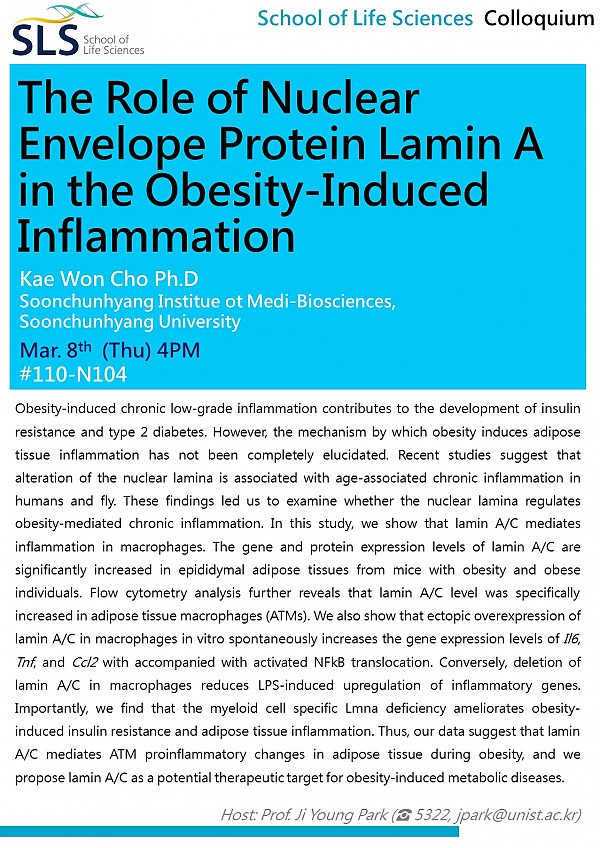Seminars & Speakers
게시물 정보
글제목 :
The Role of Nuclear Envelope Protein Lamin A in the Obesity-Induced Inflammation
추가 정보 영역
| Speaker | Kae Won Cho |
| Affiliation | 관리자 |
| Date | March 8, 2018 |
| Time | 4:00 pm - 5:30 pm |
| Venue | Room N104, Bldg 110 |
| Sponsor | UNIST-Life Sciences |
| Host | Jiyoung Park |
| Contact | jpark@unist.ac.kr |
| Phone | 5322 |
| Attach |
콜로퀴움 포스터_prof. 조계원.jpg
(422.6K)

|








